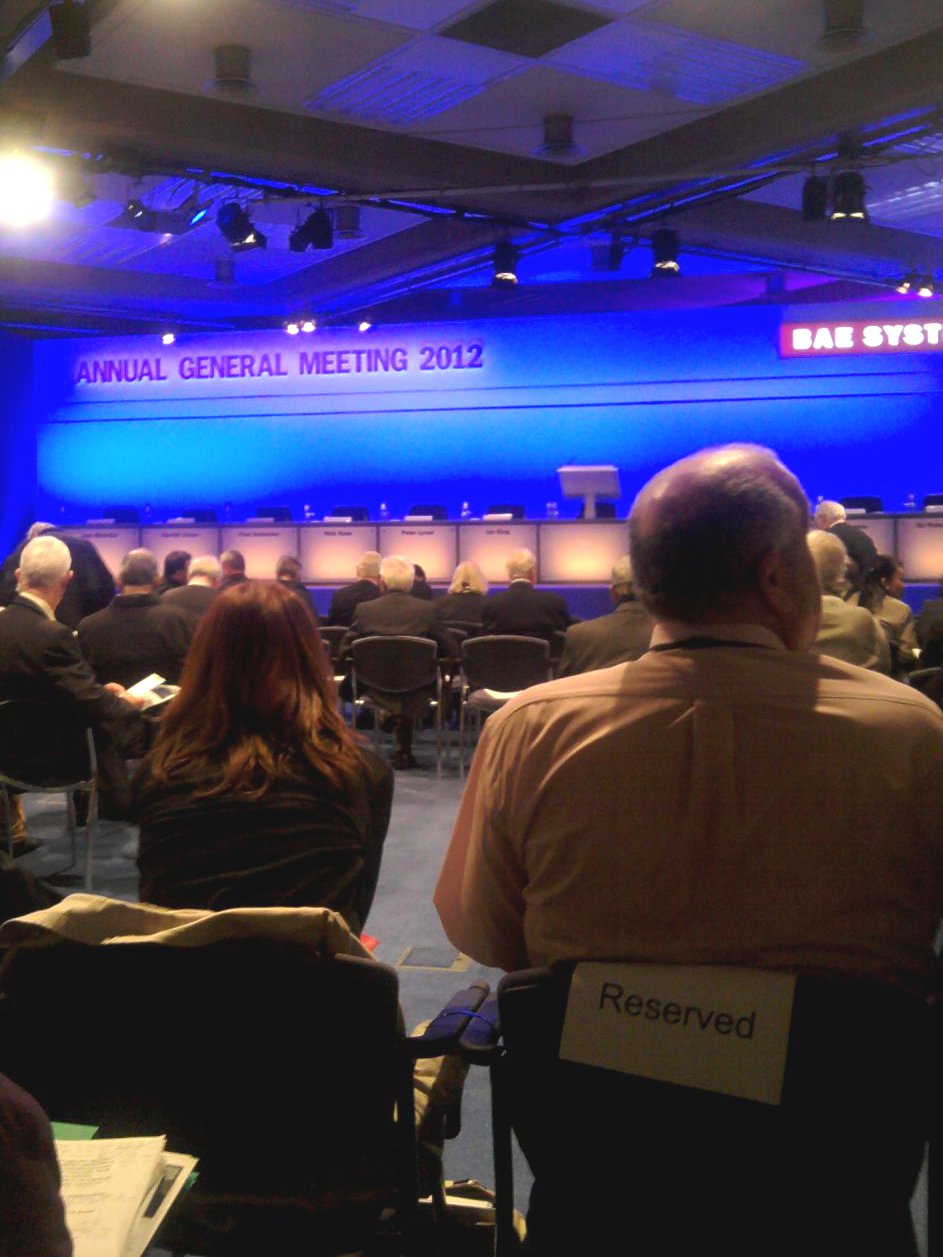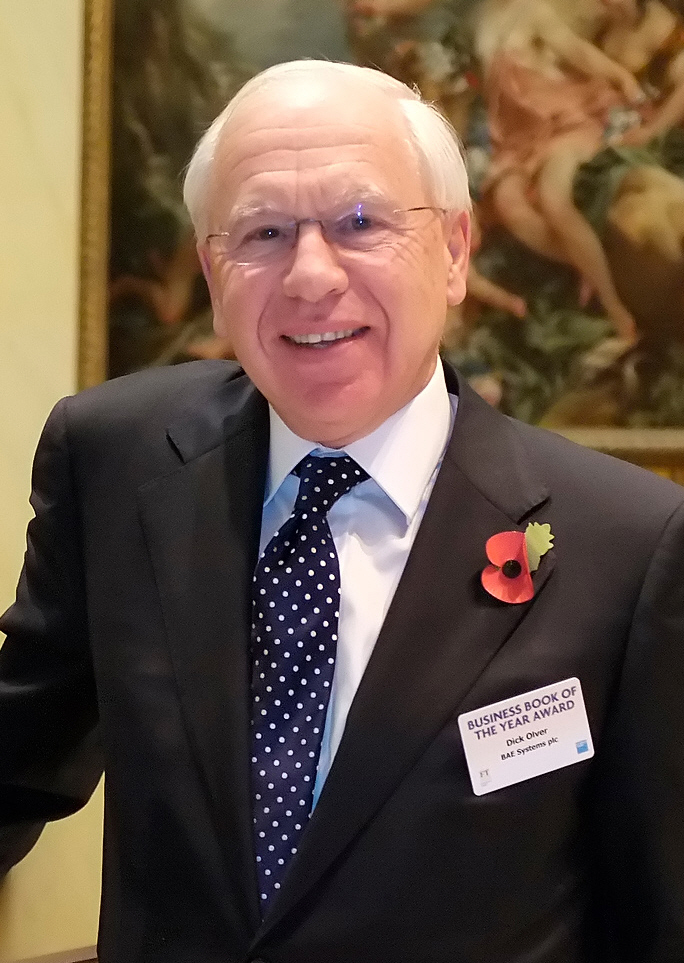Symon Hill reports from the Annual General Meeting of the world’s second-largest arms company.
Welcome to the weird and wonderful world of the BAE Systems Annual General Meeting. Shareholders were today welcomed into the Queen Elizabeth II Conference Centre, to be greeted by plush carpets, free coffee and glamorous posters featuring BAE staff saying how great it is to work for one of the world’s largest arms dealers (they don’t quite put it quite like that).
Afterwards, the AGM itself was underway, with presentations and displays about “total performance” and “a culture of responsible behaviour”. A brief film attempted to demonstrate the diversity of BAE’s staff (not reflected on the board of directors), with gender, age and ethnicity very varied. None of them mentioned what BAE really does. The worker on the film with a visible mobility impairment did not mention how much cheaper mobility equipment would be if those who produce it were to receive the same subsidies that go to arms companies.
After the AGM is over, a free lunch was provided, including a vegetarian option (for all those vegetarian arms dealers).
I attended the AGM today, as I do every year, as a BAE shareholder. Before you get worried about my buying shares in arms companies, I own only one share. Like many others, I own it so that I can turn up and hold the company to account for its arms sales, its corruption and its damage to Britain’s democracy and economy.
The BAE AGM seeks to give an image of the company that has nothing in common with reality. It is far removed from the streets of Bahrain, where peaceful demonstrators have been killed by a regime armed by BAE. It is very distant from Tanzania, where corruption led the government to buy BAE weapons they didn’t need, reducing funding to tackle poverty and provide healthcare. And it’s also several hundred miles south of Brough, where around 900 of BAE’s workers are facing redundancy as the company continues to find it more convenient to employ people overseas.
At least, it would be removed from all those things if the BAE bosses had their way. I have never seen BAE chair Dick Olver more flustered than he was today. He essentially lost control of the meeting, which broke down into heckling as he patronised workers from Brough, said he was “proud” to sell jets to Bahrain and refused to rule out arming the Saudi regime even if they used BAE’s weapons to suppress a peaceful uprising. He would not even make an apology to the Tanzanian people.
When it was suggested that arms dealers might have difficulty sleeping, he insisted “all members of BAE’s board sleep very well”.
What’s the point, I sometimes think? What’s the point of going along like this, year after year? It’s not as if we’re likely to change his mind. But there are two good practical reasons for doing so. Firstly, our questions often get reported in the media, which makes more people aware of the nature of BAE. Secondly, board members often say things that can be quoted in future debates and campaigns by those of us seeking to draw attention to the reality of their business.
Today, there was another good reason. The AGM was full of workers from Brough, facing redundancy. Dick Olver made some attempt to set the anti-arms activists and the Brough workers against each other. He suggested that Brough might have remained open had the company received more orders from Saudi Arabia – after the Campaign Against Arms Trade (CAAT) had attacked sales to the Saudi regime.
But this strategy didn’t work. The Brough workers and the anti-arms activists were soon cheering and applauding each other’s comments, particularly those about diversifying to work on renewable energy to move away from arms and keep jobs at Brough. Today, we were able to tell the workers at Brough that we’re on their side. Serious government investment in renewable energy – a far more stable prospect for the future than arms – would make use of engineering skills in Britain and could save lives in Bahrain.
This is the one day in the year when some of the most powerful arms dealers in the world have to listen to the voices of anyone who wants to challenge them. On the other 364 days, they can hide behind their bank accounts, security staff and PR departments. Not today. Today, they were confronted with reality.
© Symon Hill is associate director of Ekklesia and a member of the Steering Committee of the Campaign Against Arms Trade (CAAT).
This article first posted on Symon Hill’s blog on Ekklesia. CAAT thanks Symon and Ekklesia for allowing CAAT to reproduce it here. For a detailed report on the AGM, see Ekklesia’s report BAE ‘proud’ to sell arms to Bahrain and Saudi Arabia. See the CAAT website for more on BAE Systems.



